RIT Fortnightly Newsletter - Proclamation update - Welcome SES and MRQ - June 2024
Find out more about the Disaster and Emergency Services Reform.
Given how long we have to go until the reforms are completed, you are invited to share this newsletter with a colleague who may not be aware of the changes taking place.
What have you heard that you think needs be shouted from the roof tops?
Maybe you would like to share a townhall with a friend, featuring your favourite presenter?
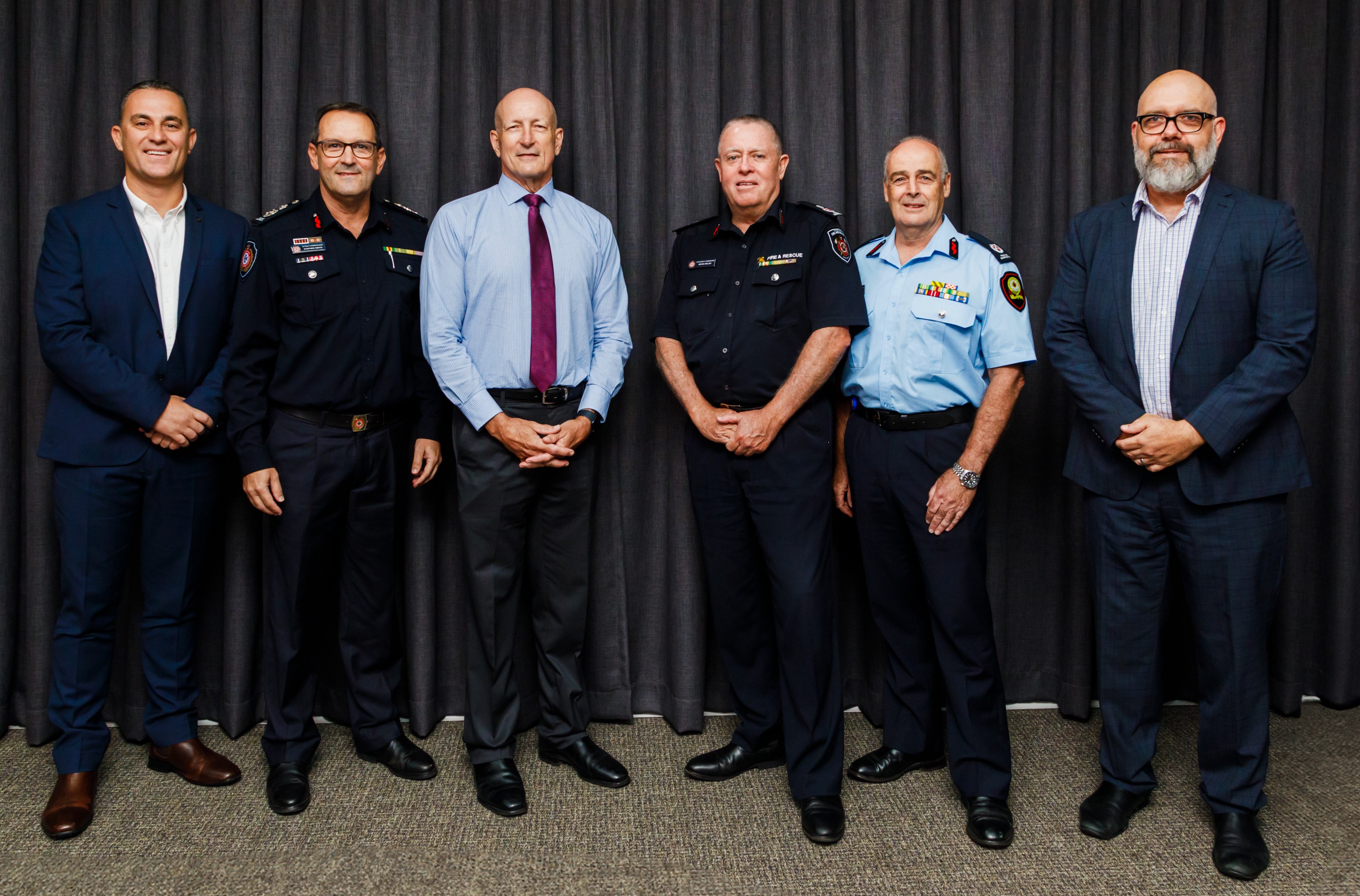
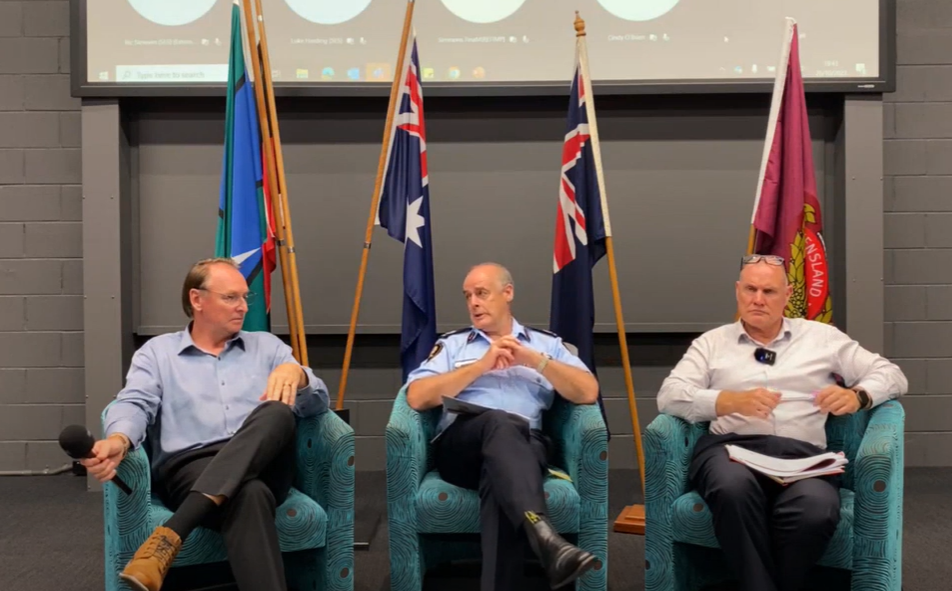
Join Acting Assistant Commissioner Marcus Hill to hear about what has been happening around the traps in our March edition of standby for broadcast. In the final months, what questions do you want answered?
What has happened in the past month? Have we encountered any roadblocks? What is ahead of us next month?
Check out the video below:
On Friday 15th March, the Community Support and Services Committee concluded its consideration of the Emergency Services Reform Amendment package and has recommended that all three bills be passed.
Have you been following our transition? Sharing information and amplifying our communications with colleagues and fellow volunteers within your agency?
If you have, a massive thank you from the RIT team! You are a Comms Champion and a vital link in supporting our communications across the disaster and emergency management reforms.
Are you ready to accept a challenge? We are asking you to start sharing what you are reading here with your colleagues and fellow volunteers. Bring them together as a group and have open discussions and share your knowledge. Furthermore, encourage them to subscribe to our newsletter to ensure they do not miss important information.

Are you aware of the below decisions?
We are committed to a measured, consistent, and cohesive implementation to improve disaster and emergency management services across Queensland.
To keep you in the loop, here are the decisions that have been endorsed:
Closure of:
RIT-07 - Transition of Service Level Agreements (Surf Lifesaving Queensland, Royal Lifesaving Society Queensland, and PCYC Emergency Services Cadets).
RIT-08 - Establishment of a Reform Implementation Taskforce (RIT) up to 30 temporary positions.
Implement the Government response and the required legislative and machinery of government (MoG) changes and corresponding increase in the FTE cap.
RIT-09 - Review of the Queensland Disaster Management Arrangements by the Inspector-General of Emergency Management - Fulfilled a commitment made to the LGAQ.
RIT-12 - Establish immediately 45 SES positions, where long term need is known, from the 490 FTE. This is to enable permanent recruitment, in place of temporary recruitment to time limited roles announced in conjunction with 2022-23 budget outcomes.
RIT-16 - Transition of funding for service level agreements for Surf Lifesaving Queensland, Royal Lifesaving Society Queensland, Police Citizens Youth Club Youth Welfare Association.
RIT-18 - Implementation of the Office of the Chief Fire Officer, six positions.
RIT-19 - Implementation of QFD 143 firefighter positions.
RIT-20 - Implementation of QRA Resourcing.
RIT-23 - QPS Corporate Capability and Capacity Uplift, review of additional QPS Corporate Resourcing and its ability to meet increased demand resulting from RIT changes.
RIT-25 - Transition of the Marine Rescue Implementation Program (MRIP) from QFES to QPS.
RIT-27 - Establishment of intelligence/community sentiment functions for the IGEM.
Ongoing support recognised
Thank you to everyone who has supported us through the severe weather season. As we approach the tail end, we are preparing to switch gears focusing on the next areas of transition, including accommodation for some of our regional folk from QFES premises to QPS premises. Each location is different and we are working through bespoke solutions as needed.
In larger areas, we will be moving towards hub style accommodation which can house our DM, SES, MRQ alongside People Hubs with corporate staff as required.
Planning for the physical relocation (where identified), fit outs including storage for SES equipment, computer hardware, software and vehicles being procured, as well as strong stakeholder engagement is well underway.
On the move
Alongside accommodation, we are working closely with our Frontline and Digital Delivery Teams for the various IT systems that require movement from QFES to QPS. This is taking time, and we look forward to being able to advise next steps here soon.
In April, the F&DD team will start the change over program for people and laptop devices where these are not compatible with the encryption requirements to move IT environments.
Settling in
One of our Emergency Management Coordinators who has already relocated and settled into their new QPS abode has volunteered to share their experience.
“The first thing I noticed was how welcoming the QPS staff have been. They are genuinely interested in EMCs and supportive of our work. They have a great understanding of Disaster Management and Operations. It is good to know that we now have central management to provide support to EMCs, as this structure didn’t exist previously. Several positives I've noticed are staff support, vision for the future, and clear organisational understanding of Disaster Manager and Operations.
Some IT changes, as part of our transition.
SES volunteers and staff will be receiving an SES email address. The format will be firstname.lastname@ses.qld.gov.au.
Access to the new SES email address and O365 licence will be post 3 June.
SES Training
Work is progressing with the QPS Academy in preparing an application to establish a stand-alone Registered Training Organisation (RTO) for SES. This will provide SES with the flexibility to tailor its operational training in the future.
The application is lengthy, but it is our intention to lodge the application with Australian Skills Quality Authority (ASQA) by the end of this month.
This month we onboarded our SES Training Team. The team design and develop training products (nationally recognised accredited training and skills-based training). The SES Training Team will also assist with developing volunteer and staff trainers.
After transition we intend to review our training products and begin to make improvements.
The image below illustrates how SES will work with the QPS Academy. Essentially, QPS Academy undertakes compliance and audit for the SES Registered Training Organisation.
The new SES training team will give SES greater autonomy over training design and development.
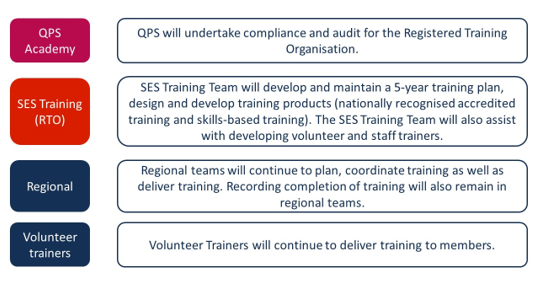 Staff accommodation arrangements
Staff accommodation arrangements
Some of SES’s accommodation arrangements are no longer fit for purpose, as we have exceeded capacity in many locations across the State.
Work is underway to explore temporary accommodation as well as developing a 5-year accommodation plan. With the creation of the People Hubs, there is also work to explore how we co-locate these within SES locations.
Accommodation changes and changes to places of work are always difficult decisions to make.
Discussions at this stage are purely exploratory and no decision has been made. At this stage, there are no changes to work locations. Should a decision be made, you will be consulted, as well as your industrial bodies.
Developing a plan for our accommodation requirements will take time, and the future accommodation footprint is not yet known.
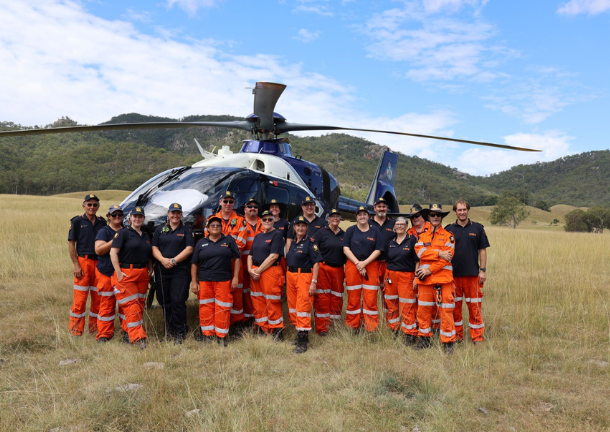
Collaborative effort
QRA is participating in ongoing engagement with QPS and QFES representatives to ensure the effective transition of the identified projects and activities transferring from QFES to QRA.
Conversations and information sharing sessions between the agencies have been positive and collaborative to date. QRA’s shared commitment to no degradation of service has resulted in cooperative relationships between the agencies, that will ensure support during the transition process and beyond.
Following the transition and integration of the new functions from 1 July 2024, QRA’s continued assistance for local communities with recovery efforts will be enhanced, expanding the capability and services QRA is responsible for in Queensland.
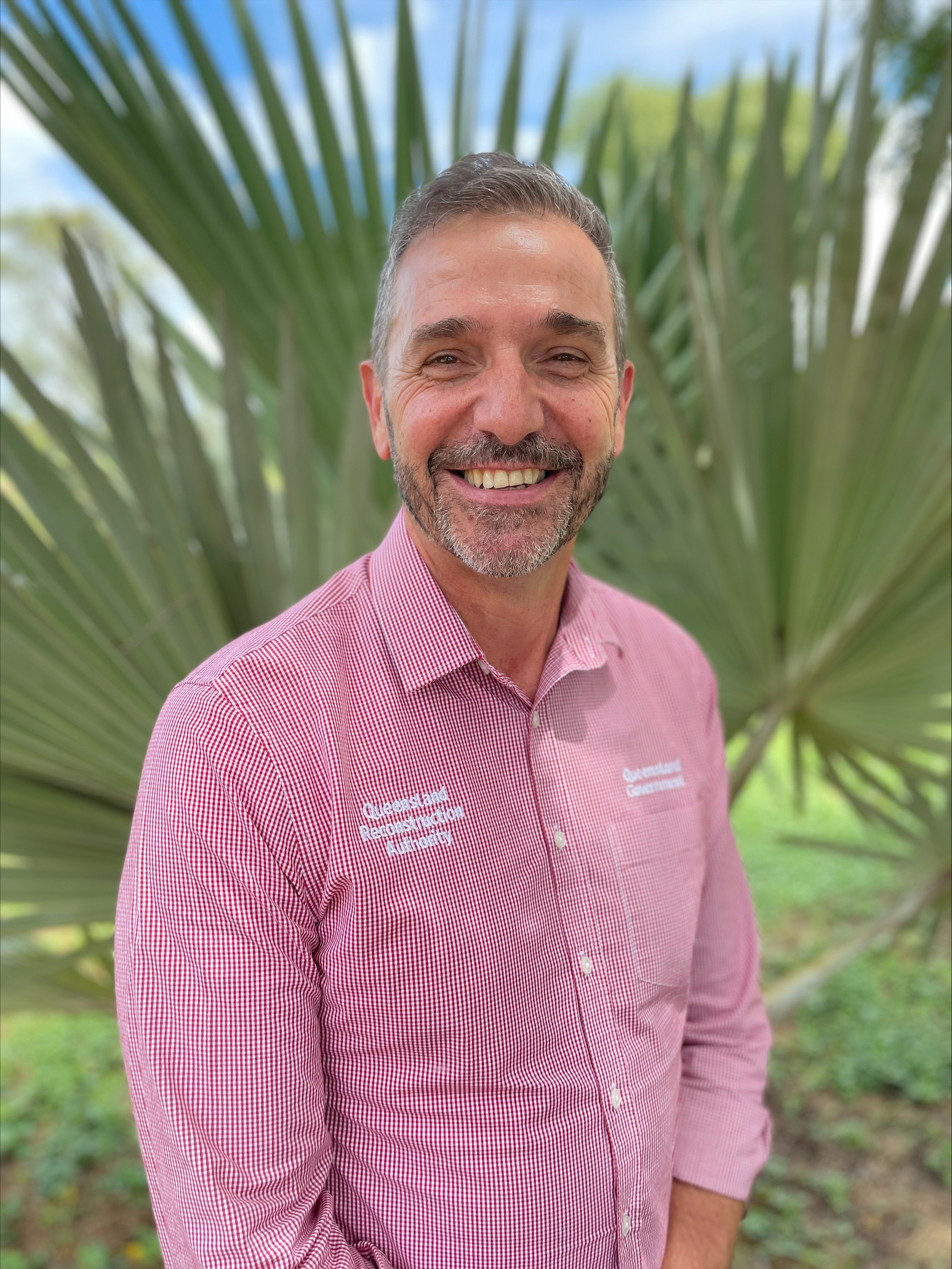
While continuing to support the recovery of Far North Queensland communities affected by Tropical Cyclone Jasper, QFES Deputy Commissioner Mike Wassing is also sharing valuable insights to inform the transition of hazard and risk functions to QRA.
With his wealth of experience in disaster management and his insights into challenges currently facing Queensland in recovery from multiple disaster events, Mike is well placed to provide advice on the transition of this critical work, alongside colleagues General Manager Resilience and Recovery Vina Varsani and Acting Director Flood Risk Management Nicole Oliver, as they develop the new QRA Hazard and Risk Unit.
General update
In his welcome address at the recent inaugural Townhall, Marine Rescue Implementation Program (MRIP) Business Reform Coordinator Greg Ringuet highlighted the criticality of addressing volunteers' concerns throughout the transition process.
Discussions focused on Marine Rescue Queensland's (MRQ) commitment to maintaining and preserving the current organisational structure to ensure continuity and stability.
Volunteers were reassured of MRQ's status as a standalone entity, with clearly defined internal reporting lines, addressing any apprehensions about oversight by the Queensland Police Service.
Chief Officer Tony Wulff emphasised the importance of honouring the legacy of marine rescue services, addressing present challenges and sharing his future vision where MRQ continues to deliver safer boating services to all communities.
The program team provided detailed updates on Phase 1 of the transition, proudly announcing a significant milestone, all phase 11 one units have signed letters of intention to join MRQ.
The event also recognised the passion and dedication of volunteers, acknowledging their invaluable contributions to maritime communities over the past five decades.
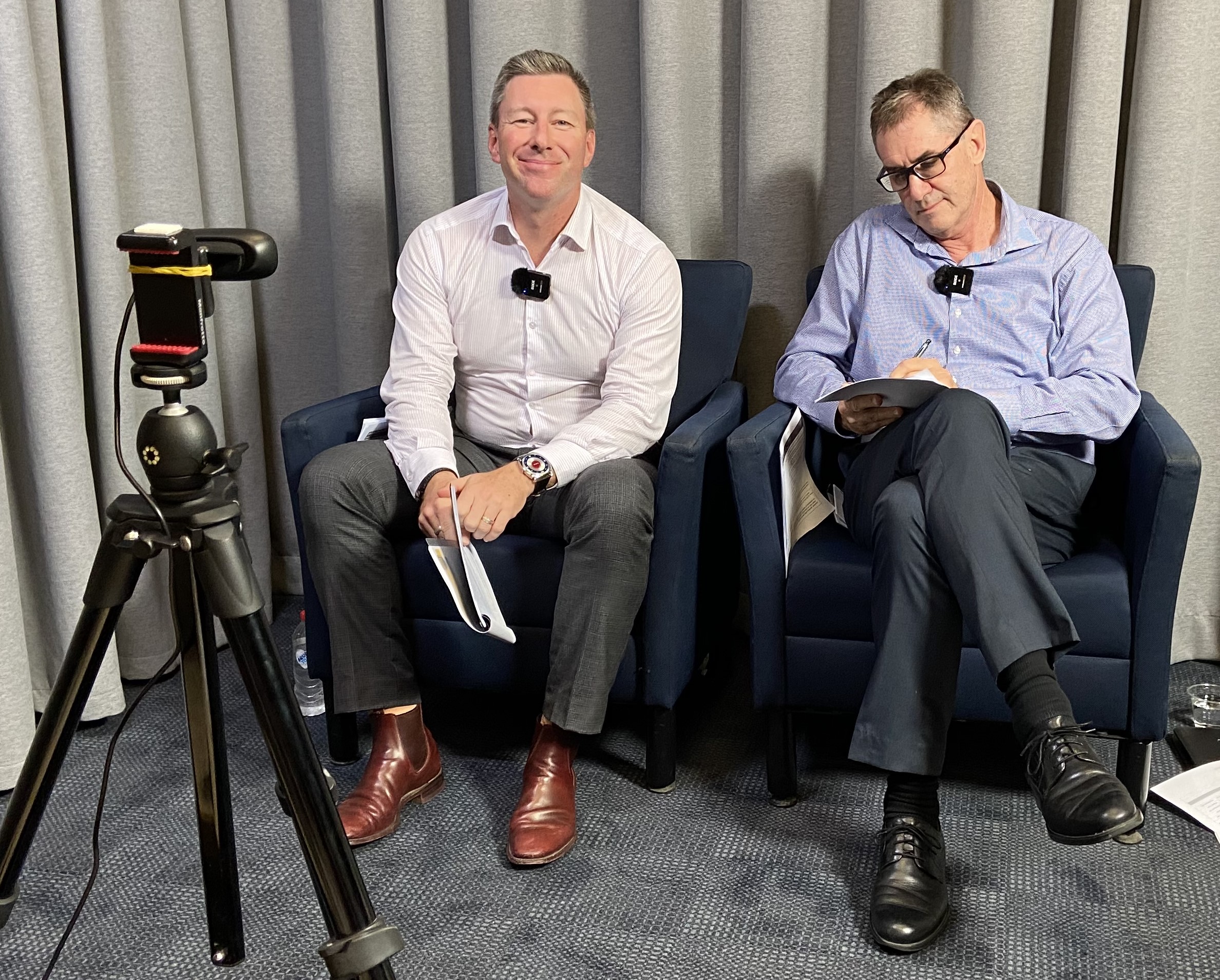
The team also delved into the proposed procedure for appointing unit commanders and deputy unit commanders, underscoring forthcoming consultations with the volunteer reference group. They stressed the pivotal role of core staffing structures in MRQ, aimed at fortifying operational readiness.
Training emerged as a cornerstone, ensuring volunteers are fully equipped and prepared for emergency responses and preventive actions. Volunteers were assured of sustained support throughout the transition, encompassing ongoing work cover arrangements and uninterrupted radio operations.
As MRQ prepares for the Phase 1 transition, the MRIP team stands ready to assist volunteers in navigating new legislation, evaluating operational readiness and planning for financial and logistical needs.
Community engagement and service delivery remain paramount, with volunteers encouraged to voice their feedback and communicate concerns throughout the process.
The session, attended by around 200 stakeholders and volunteers, reaffirmed the organisation's unwavering commitment to safety and service excellence. With volunteers at the helm, MRQ is ready to navigate these changes, ensuring the safety and wellbeing of the boating community.
If you were unable to make it along to the Townhall, or if you would like to share it with a crew member, the recorded session is available below:
New home for marine emergency services in Cairns
Cairns will soon be the home of Queensland's first marine operations base, uniting marine rescue services in the area under one roof.
The Cairns Marine Operations Base will be shared by Cairns Water Police, the QF9 flotilla of the Australian Volunteer Coast Guard Association (AVCGA), and the future MRQ. Additionally, Maritime Safety Queensland (MSQ) will also have a presence at the base.
The fit-for-purpose Cairns Marine Operations Base is the ideal solution to enhance existing relationships between Police and marine rescue volunteers, and meet a growing service demand through shared equipment, resources and knowledge.
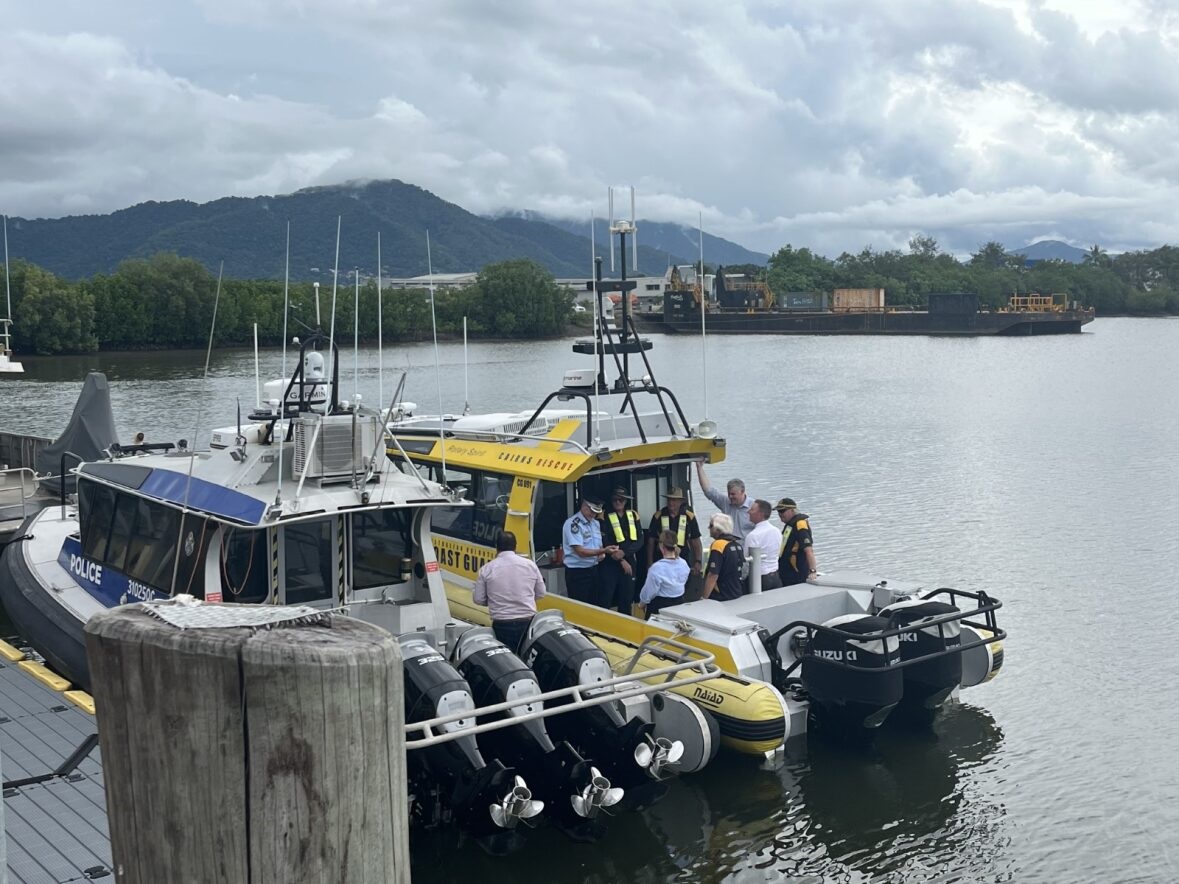
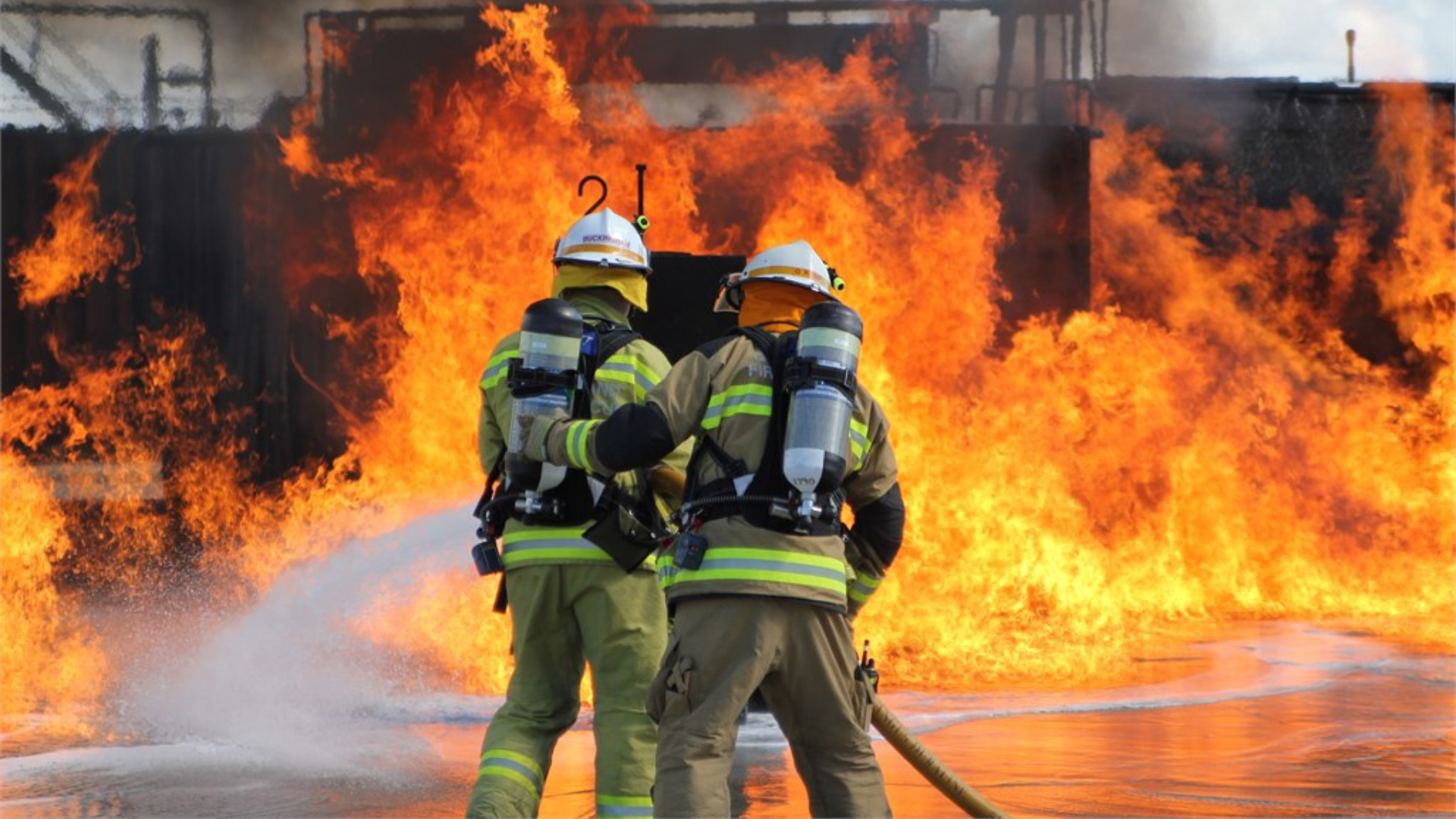
An important step forward in the establishment of QFD
Minister for Fire and Disaster Recovery the honourable Nikki Boyd introduced legislation to the Legislative Assembly earlier this month, that will pave the way for the new Queensland Fire Department.
The Disaster Management and Other Legislation Amendment Bill 2024 (the Bill) represents the second stage of emergency service and disaster management legislative reforms being undertaken, to implement recommendations from the Independent Review of Queensland Fire and Emergency Services and the Inspector-General of Emergency Management’s Review of Queensland’s Disaster Management Arrangements.
Proposed amendments to the Fire and Emergency Services Act 1990 will establish the Rural Fire Service Queensland (RFSQ) and Queensland Fire and Rescue (QFR) as separate dedicated fire services with dedicated budgets under the Act.
The Bill contains amendments that will formally recognise brigades and their volunteer members, addressing historical issues concerning the legal status of rural fire brigades and volunteer protections.
A copy of the Bill is now available on the Queensland Parliament website at What's new | Queensland Parliament.
To further assist with understanding the changes taking place to the Rural Fire Service, three videos are available to provide more clarity. They can be found at the QFES website or via the ForGov News page
Strengthening Queensland's Rural Fire Service
Since commencing with QFES last month, Acting Chief Officer Ben Millington has been meeting with many staff, volunteers and stakeholders, including the brigades.
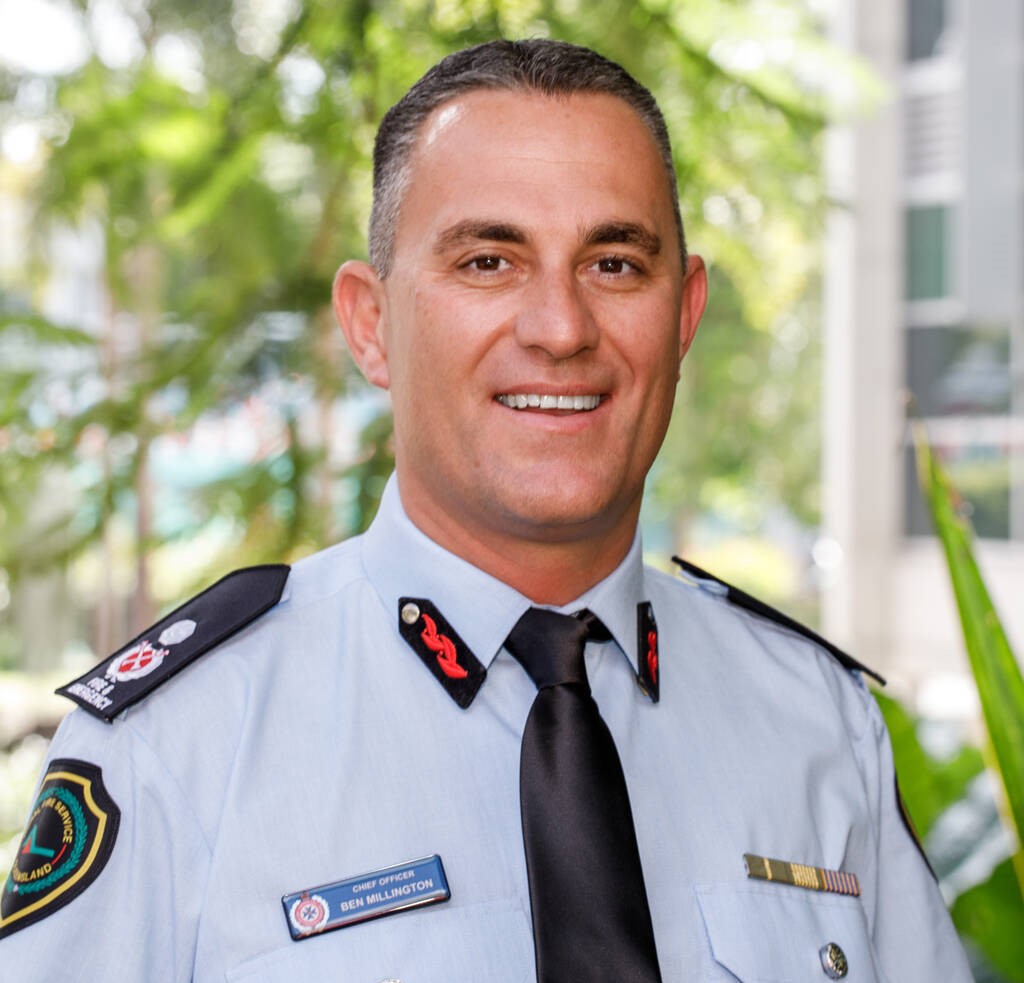 On 6 March the A/Chief Officer facilitated an online forum for volunteers alongside A/Commissioner Steve Smith, A/Assistant Commissioner Peter Hollier, A/Assistant Commissioner Matt Inwood, Superintendent Peta Miller-Rose, and A/Inspector Jodie Templeman.
On 6 March the A/Chief Officer facilitated an online forum for volunteers alongside A/Commissioner Steve Smith, A/Assistant Commissioner Peter Hollier, A/Assistant Commissioner Matt Inwood, Superintendent Peta Miller-Rose, and A/Inspector Jodie Templeman.
The forum included a review of the 2023/24 season, an update on volunteer training and information about the current status of projects, such as the first release of the FAST Qld app (Frontline Activations Support Tool), the NBN rollout to 347 stations, order and delivery of appliances and equipment to the value of $8 million, volunteer onboarding via Nexus, and the RFS Frontline Women’s Network. The session was also an opportunity for an overview of the reforms, and for members to ask questions.
If you missed the townhall on the night or perhaps you simply want to share it with a colleague, a recording of the session is available below:
A bit about Ben
Acting Chief Officer of the current Rural Fire Service, Ben Millington has significant operational and leadership experience overseeing emergency management, state operations and aviation as well as volunteer-based emergency services.
Most recently he held the role of Assistant Commissioner State Operations with the NSW Rural Fire Service. Before joining the NSW RFS in 2011, Ben served in the NSW Police Force for more than a decade.
Ben is undertaking the RFS Chief Officer role, while Chief Officer Mike Wassing is seconded to the Queensland Reconstruction Authority.
Ben’s full bio is available on the QFES website
Keep Informed
Visit ForGov for information, news, videos, upcoming engagement opportunities and events.
Contact Us
Have any questions, comments or concerns? Please contact us. We value your feedback.
Your browser is not supported. Some functionality might not work as expected.
Please upgrade your browser to a version on the supported browser list